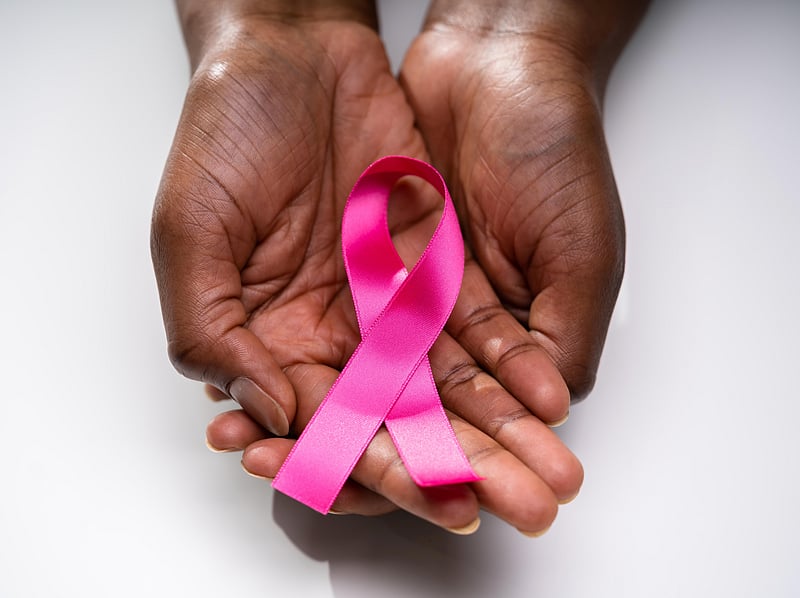Manténgase sano!

- Denise Mann
- Posted April 27, 2023
Many Breast Cancer Survivors May Be Able to Forgo Mammograms in Old Age: Study
Older breast cancer survivors often have other medical issues and a shorter life expectancy than younger breast cancer survivors. What's more, their cancers are often slow-growing, and surveillance may lead to over-treatment of cancers that won't kill them, researchers say.
Despite these downsides, older breast cancer survivors are still undergoing mammograms even though their risk of developing a second breast cancer is low, a new study found.
"It may be OK to forgo mammograms as there is a low risk of another breast cancer diagnosis in women with limited life expectancy or with hormone-sensitive tumors,"said study author Dr. Elizabeth Berger, an assistant professor of surgery at Yale University School of Medicine. Certain hormone-sensitive breast cancers are considered less aggressive.
For the study, the researchers analyzed data on nearly 44,500 women from two registries spanning 2003 to 2007. Women were 67 or older when diagnosed with their first breast cancer, and most had early-stage and highly treatable breast cancers. Thirty percent of women in the study were over 80.
All women were followed starting a year after their diagnosis until they developed a second breast cancer, died or the study ended in 2017. Researchers estimated their life expectancy based on their age and whether they had other medical problems.
Of these women, 55% had at least one other medical condition, while 16% had three or more other medical problems unrelated to breast cancer. Co-occurring medical issues take a toll on life expectancy.
The risk of developing a second breast cancer differed based on a woman's life expectancy, the study found. Women with a life expectancy of less than five years had a 3.7% risk of developing a second breast cancer. By contrast, women expected to live for 10 years or longer had a risk of 7.6% of their breast cancer returning.
Older women with multiple medical problems and a shorter life expectancy were still undergoing mammograms. Specifically, 51% of women with a life expectancy of less than one year received at least one mammogram within 12 months of their death.
Surveillance mammograms bring little benefit for these women, Berger noted. The study "should bring to attention the high surveillance rates of women even with minimal life expectancy," she said.
Still, there is no one-size-fits-all recommendation as some older breast cancer survivors may still need surveillance and screening.
"Younger women with more aggressive subtypes of breast cancers have higher risks of another breast cancer diagnosis and should consider ongoing surveillance mammography,"Berger said. "This should be a shared decision between provider and patient, and [other disease] risks should be taken into consideration."
Anyone who finds a lump in their breast should talk to their doctor about next steps, she said.
The findings were to be presented Thursday at the annual meeting of the American Society of Breast Surgeons, in Boston. Research presented at medical conferences should be considered preliminary until published in a peer-reviewed journal.
Other breast cancer experts said many factors play a role in breast cancer screening decisions for survivors.
"Screening decisions should be made with an awareness of a patient's overall health, life expectancy and their ability to tolerate treatment, rather than via a specific age cutoff,"said Dr. Samantha Heller, a professor of radiology and section head of breast imaging at the New York University School of Medicine in New York City.
"The population in this study are women who have a prior history of breast cancer; this means that they have a higher-than-average risk of developing a later breast cancer and may particularly benefit from continued screening surveillance,"Heller said.
More studies on breast cancer screening and outcomes in this group of women are needed before making any blanket recommendations, she said.
Other variables that may contribute to risk include family history, certain genetic mutations and breast density, Heller said.
"These factors also play into determining screening outcomes and may help to determine optimal and personalized screening approaches for older women,"she said. "Patient choice and willingness to undergo treatment is always important and should always be considered as well."
Having this conversation can also be trying, said Dr. Sarah Blair, a surgical oncologist at the University of California, San Diego Health.
"It is difficult to withhold care even though the benefit may be small,"she said. "This paper gives physicians data to consider and start to have these conversations."
More information
The American Cancer Society has more on screening after a breast cancer diagnosis.
SOURCES: Elizabeth Berger, MD, assistant professor, surgery, Yale University School of Medicine, New Haven, Conn.; Samantha Heller, MD, PhD, professor, radiology, section head, breast imaging, New York University School of Medicine, New York City; Sarah Blair, MD, surgical oncologist, University of California, San Diego; presentation, American Society of Breast Surgeons, April 27, 2023, Boston






